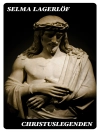In *The Revolutionary Treatises*, Martin Luther articulates his profound theological insights that punctuate the dawn of the Reformation. These writings, blending passionate rhetoric with incisive argumentation, challenge the established doctrines of the Church, advocating for faith over works and the authority of Scripture over ecclesiastical tradition. Set against the tumultuous backdrop of 16th century Europe, Luther’s treatises engage with contemporary issues of corruption, salvation, and ecclesiastical authority, employing a style that is both polemical and deeply personal, invigorated by the conviction of his beliefs. Martin Luther, a former monk and scholar, emerged from a rigorous academic and religious background that profoundly influenced his thought. His discontent with Church practices, particularly the sale of indulgences, propelled him to pen these revolutionary texts, as he sought to reform Christianity from within. The provocateur of his time, Luther’s powerful assertions were not only theological but also social, contributing to a burgeoning sense of individualism and personal faith. *The Revolutionary Treatises* is essential reading for anyone seeking to understand the foundations of Protestant thought and its lasting Reformation legacy. Luther’s clear and fervent prose invites readers to grapple with deep questions of faith and authority, making this collection a vital component of any theological library.
About the author
Martin Luther (1483-1546) was a seminal figure in the Protestant Reformation, an intellectual and religious movement that profoundly transformed Christianity in the early modern era. Born in Eisleben, Germany, Luther was initially set on a legal career before a life-altering experience compelled him to become a monk. His scholarly pursuits at the University of Wittenberg led to his deep engagement with scriptural studies, which fueled his criticism of the Roman Catholic Church’s practices and teachings, especially the sale of indulgences. Luther’s doctrinal challenges reached a crescendo with the publication of the ’95 Theses’ in 1517, a document that questioned the Church’s authority and promoted the concept of ‘sola scriptura’, or the Bible as the sole source of religious authority. His subsequent works, like ‘The Revolutionary Treatises, ‘ further elaborated on his theological positions, including justification by faith alone and the priesthood of all believers. Luther’s translation of the Bible into German democratized access to the scriptures, fostering a tradition of vernacular literature and enhancing literacy rates. His contributions to theology, religious practice, and church organization have left an indelible impact on Western civilization. Luther’s literary style was characterized by a directness and forceful clarity, aimed at reaching a wide audience. His legacy endures in the Lutheran tradition and the broader Protestant denominations that his teachings spawned.












